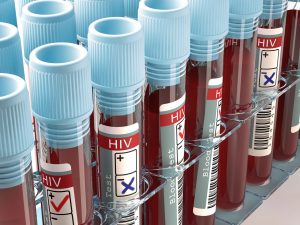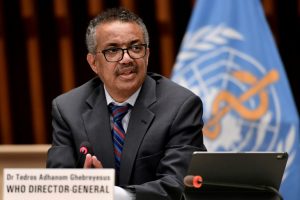The Hope for Future Generation (HFFG), a non-governmental organisation, in collaboration with Star Ghana, has rolled out a health care accountability project, aim at helping to expose and reduce corruption in the health sector.
The project would also shame and honour health care personnel and facilities that excel in health care delivery or otherwise.
The two-year project, dubbed “Not In Our Name: Tackling Extortion in the Ghanaian Healthcare System”, is being rolled out on the premise that corruption within the health service decreases the efficiency and quality of care for all patients and diminishes trust and confidence in healthcare workers.
The UKAid and DANIDA are the funding partners.
Ms Adjoa Lartey, Project Officer who doubles as an officer at HFFG, said illegal extortion within the healthcare system is harmful to the public and the impact is acutely felt by the poorest individuals.
She was speaking to the Ghana News Agency in Accra at the end of a Community Champions Training and stakeholders’ sensitisation forum organised by HFFG.
The event was attended by opinion leaders, community champions, health care providers and district directors of health services in the project areas.
Ms Lartey said corruption in health facilities include: “petty corruption, patient paying for things that are already covered under the NHIS, people jumping queues to see a doctor, patient being referred from a public facility to a private facility for a Laboratory test, among others.
“Extortion at the point of use within both private and public sectors take several forms including demands of unapproved fees by healthcare workers without issuing official receipts; healthcare workers referring patients to private facilities or services when suitable public alternatives are available –‘quiet corruption’; doctors vacating their posts or using paid hours for locum; the extortion of monies in order to be treated more quickly; as well as demand for payment for items covered by the patients’ health insurance; and unnecessary overnight admission of patients for profit”.
Ms Lartey said the Ningo Health Centre at the Ningo-Prampram District and Amasaman Government Hospital in the Ga West District with two other hospitals in Assin North and the Ajumako Enyan Asiam districts in the Central Regions would be involved in the project, which was expected to be sustained even after the two year elapses.
She said the project aims at establishing an anti-corruption help desk with trained staff within the districts and the creation of bespoke online platforms for instant reporting of abuse.
Ms Lartey said such poor individuals and citizens were easily exploited at the public health facilities due to the lack of knowledge of their rights and the patient charter, including people who do not speak English.
She said people, including Persons with Disabilities who could not afford to pay bribes for quicker treatment are pushed down the queue, which could make serious health issues worse.
Those who live in rural communities who may have made a long journey for medical attention then face a choice between paying a higher price than they had anticipated or can afford for treatment, or going home with their problem unsolved, she said.
she said the situation could also generate into a state where the health of women and girls may not be prioritized, especially in situations where male family members provide financial means for the rest of the family.
Ms Lartey said the reports or complaints from the patients would be compiled and submitted to the authorities of the facility for them to address adding that “We want to change attitudes. We want to reduce the incidence of extortion and we want to increase the exposure of corruption. And at the end of it all increase confidence in the health sector”.
Ms Vivian Dwira, Deputy Director of Nursing Services at the Ningo-Prampram District Health Directorate, said the project would keep health care personnel be on their toes while helping to improve the healthcare delivery in the society.
Source: GNA






